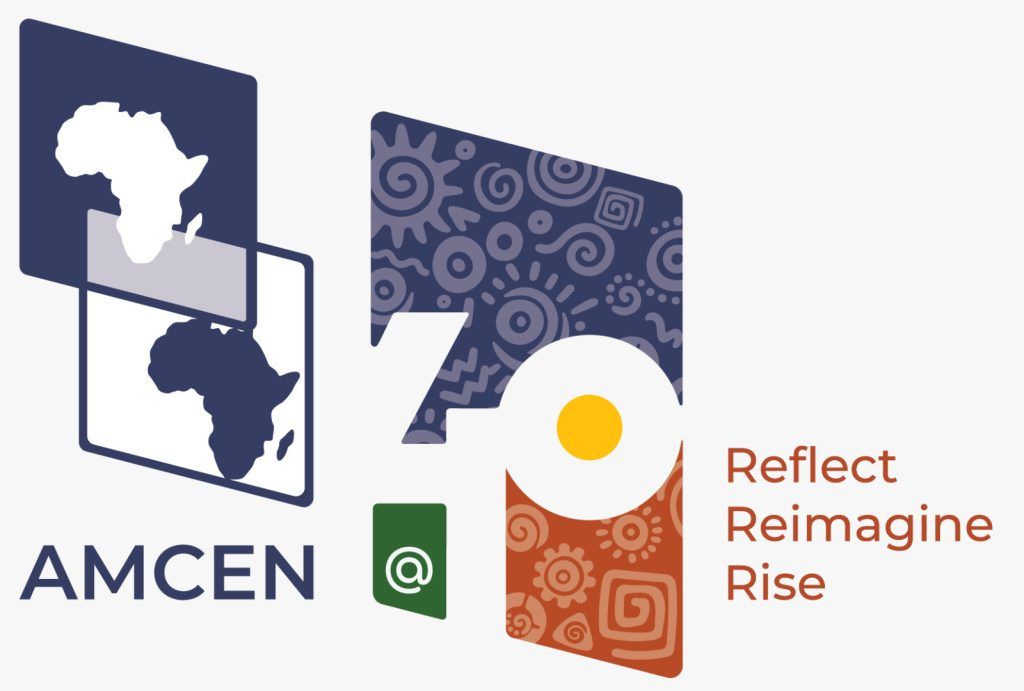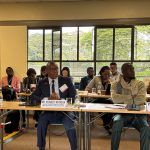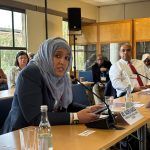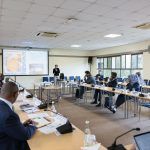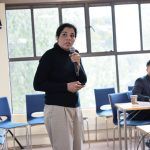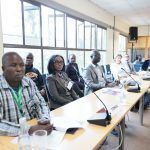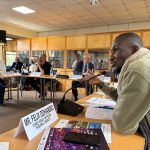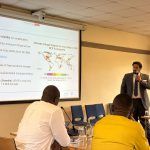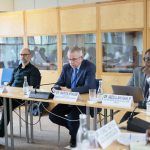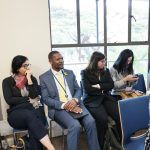Cool Coalition at the 20th African Ministerial
Conference on the Environment
Technical Side Event – Dialogue for Sustainable Cooling in Buildings, Cities, and Cold Chain for Inclusive Extreme Heat Adaptation in Africa
14 July 2025 | 13:00 – 14:45 EAT | Conference Room 10, UNON Compound, Nairobi, Kenya
Background
The last decade was the warmest in Africa. As temperatures rise from climate change, extreme heat is becoming a major risk to health, productivity, and sustainable development across Africa. The region is projected to experience some of the highest increases in heat exposure globally. Africa bears a disproportionate burden of heat stress. About 300 million people in Africa experienced life threatening heat stress in the last one year; this is about 75% of all people exposed to risky levels of heat globally. 1 Intergovernmental Panel on Climate Chage predicts nearly 35 African cities can experience more than 150 days of 40 °C plus temperatures annually in case of a 2°C global warming scenario. Rapid urbanization without appropriate urban planning is aggravating climate change in cities induced heat through urban heat islands caused from of natural blue-green covers so crucial for avoiding higher temperatures. Africa is witnessing the fastest population growth globally with corresponding high nutritional needs and agriculture sector is a dominant contributor to national gross domestic products. Rising heat is also disrupting crop yields and weakening vaccine supply; the ensuing threats to farmer incomes, and, food and nutritional security will have wider negative implications for equitable economic growth.
Extreme heat is additionally driving an unprecedented demand for energy as people race to invest in electrical cooling systems for relief. According to Global Cooling Watch 2023, Africa is projected to experience among the fastest growth in cooling demand globally, with inefficient cooling at risk of placing heavy burdens on energy systems and household expenditures. Rising and sustained heat in the African continent is thus risking livelihoods, health, and productivity. This can result in deeper inequality, strained energy systems, and dilution of hard-won development gains.
This Technical Side Event on Dialogue on Sustainable Cooling in Cities, Buildings and Cold Chain for Inclusive Extreme Heat Adaptation in Africa at the 20th Ordinary Session of the African Ministerial Conference on the Environment (AMCEN-20), will showcase sustainable cooling, specifically passive cooling strategies in buildings and efficient cold chain, for extreme heat adaptation, implemented successfully in India and South-east Asia by the United Nations Environment Programme (UNEP) and Swiss Agency for Development and Cooperation (SDC). Dialogue within AMCEN 20 will aid in exploring pathways for adoption and scaling of such approaches in the African continent to address its unique climate, urban, and institutional realities.
Passive cooling, achieved through climate-responsive building architecture, enhance indoor thermal comfort by decreasing temperatures by upto 3-4 °C and reduce cooling energy demand by about 30 percent in buildings. Urban heat island effects (UHIE) and heat waves are also mitigated through intelligent integration in urban spaces. It becomes more critical in geographies where access to electrical cooling is restricted because of nascent markets or low purchasing power. UNEP’s Cool Coalition, the Global Alliance for Buildings and Construction – GlobalABC and Swiss Agency for Development Cooperation – SDC are partnering to implement BeCool project in India to advance policies, finance, and capacities for passive cooling. It has resulted in successful national and sub-national action on building regulations and real estate sector capacity building for passive cooling, and, heat resilient city planning to mitigate UHIE. The Cool Coalition is also partnering with government and private sector to update policies, technical standards, and private sector capacities for integrating energy efficient and renewable energy technologies in cold chain infrastructure.
UNEP convened Cool Coalition is supporting African governments and institutions through a unique platform for technical cooperation, knowledge-exchange, and implementation support. With more than 250 partners, including national governments, financial institutions, cities, and the private sector, the Cool Coalition catalyzes technology and finance innovation, policy exchange and coordinated technical assistance for, sustainable cooling that work across diverse contexts.
UNEP led GlobalABC is the leading global platform for governments, private sector, civil society, research, and intergovernmental organizations committed to a common vision: A zero-emission, efficient and resilient buildings, and construction sector. Key initiatives include the Intergovernmental Council for Buildings and Climate (ICBC), now with 47 members and 17 observers, hosted by UNEP/GlobalABC. ICBC aligns reforms, shares policies, and scales proven solutions, fostering collaboration among countries. GlobalABC also hosts the Buildings Breakthrough (BBT), a technical coalition of front-runner countries and partners working to make near-zero emission and resilient buildings the global norm by 2030.
UNEP convened Cool Coalition is supporting African governments and institutions through a unique platform for technical cooperation, knowledge-exchange, and implementation support. With more than 250 partners, including national governments, financial institutions, cities, and the private sector, the Cool Coalition catalyzes technology and finance innovation, policy exchange and coordinated technical assistance for, sustainable cooling that work across diverse contexts.
SDC is Switzerland’s international cooperation agency within the Federal Department of Foreign Affairs (FDFA) and responsible for the overall coordination of development cooperation alongside other federal offices, as well as for Swiss humanitarian aid.
Objectives
- Present transferable insights and case studies from India’s BeCool project and similar initiatives, with a focus on governance for extreme heat, heat-resilient urban planning and incentivising and scaling investment in passively cooled buildings with sustainable materials.
- Identify technical, financial, and institutional pathways to accelerate implementation of sustainable cooling solutions across buildings and cold chain sectors.
- Promote regional collaboration and South–South knowledge-exchange on integrated heat adaptation through sustainably cooled buildings and urban spaces.
Expected outcomes
- Enhanced awareness among policymakers about low-emission, cost-effective and pragmatic cooling and building decarbonization strategies responsive to Africa’s extreme heat risks.
- Strengthened regional collaboration and South–South knowledge exchange on extreme heat response through passive cooling in buildings and urban planning.
- Actionable insights, drawing from the successful BeCool India program and Cambodia passive cooling project jointly implemented by UNEP Cool Coalition and GlobalABC initiatives, to inform national and sub-national policies for heat resilience in Africa
- Identification of investment priorities, capacity-building needs, and opportunities for donor engagement to scale up sustainable buildings and city cooling initiatives across Africa.
Agenda
13:00 – 13:10
Special Address
UN: Call to Action on Extreme Heat
Martin Krause, Director, UNEP Climate Change Division
13:10 – 13:20
Address
Equitable Extreme Heat Adaptation in the Built Environment
Julien Peissard, Deputy Regional Head of International Cooperation – Horn of Africa, Swiss Agency for Development and Cooperation
13:20 – 13:45
Spotlight Presentation 1
Passively Cooled Buildings and Approaches for Adoption: BeCool India Experiences
Aarti Nain, UNEP Advisor, Extreme Heat and Sustainable Cooling
13:45 – 14:00
Spotlight Presentation 2
Food and Livelihood Security through Sustainable Cold Chain
Amr Seleem, Climate Policy Lead, UNEP Cool Coalition
14:00 – 14:45
Dialogue and Q&A: Scaling up Sustainable Cooling in Africa
Moderated by Aarti Nain and Konish Naidu, UNEP
Interventions by:
-
Abdullahi Kahlif, NDC Partnership In-Country Facilitator, Somalia
-
Mohamed Sharif Ibrahim, Deputy Executive Director, IRAD, Somalia
-
Kennedy Matheka, National Coordinator, Ministry of Housing, Urban Development and Public Works, Kenya
-
Felix Odhiambo, Chief Heat Officer, Kisumu County
-
Vincent Kitio, Chief, Urban Energie Unit, UN-Habitat
-
Alderman Eddie Andrews, Executive Deputy Mayor, Cape Town
-
Nasra Nanda, Chairperson, Africa Regional Network, WorldGBC
Resources
Photo gallery
Contact
- Mr. Konish Naidu, Green Building Specialist, [email protected]
- Mr. Amr Seleem, Climate Change Specialist, [email protected]
Breakfast Dialogue – Cities and Climate: Bridging National and Subnational Action
15 July 2025 | 08:00 – 10:00 EAT | Recreation Center, UNON Compound, Nairobi, Kenya
Background
Organized on the sidelines of African Ministerial Conference on the Environment (AMCEN), the Breakfast Meeting offers an opportunity for African Mayors, Governors, and national technical experts to engage directly with climate experts. This closed-door conversation will center on the latest climate science and trends, including a frank conversation on the hard limits to adaptation to climate change and insights on a world beyond 1.5 and its implications on how cities are built and managed.
Expected outcomes
- Foster collaboration among urban leaders, national experts, and scientists, positioning cities as key players in the African environment dialogue and contributing to global sustainability agenda.
- Raise awareness on potential climatic tipping points (scenarios of a world beyond 1.5 degrees), and the need to accelerate mitigation strategies (e.g. around cooling, the types of building materials we use) while pursuing a world beyond
- Integrate the discussions into the technical outcome document of AMCEN that guides actions for 2025 – 2027, accelerating subnational and national actions towards the 1.5°C target while addressing the need for adaptation and resilience planning, as well as linking to and enhancing synergies with NDC 3.0, its localization and the Coalition for High Ambition Multilevel Partnerships (CHAMP).
Contact
- Ms Lena Kopetzky, Climate Change Division Consultant, [email protected]
- Ms Estefanía Rodríguez, UNV Greener Cities Specialist, [email protected]

